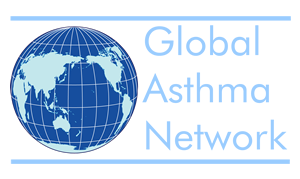

Although asthma can be well controlled with available treatment, poor asthma control/management continues to be common in Aotearoa/New Zealand (NZ) especially among Pacific peoples and Māori. Hospital admissions for asthma in Pacific people and Māori aged <50 years are proportionally higher at all ages compared to European or other ethnicities. Overall, Pacific peoples are 3.9 times more likely to be hospitalised for asthma than European or other non-Pacific, non-Māori NZ-ers.
The Global Asthma Network (GAN) Phase I was undertaken in NZ in 6-7 year old children and 13-14 year old adolescents.
In children, there was no difference between the prevalence of recent wheeze among the three ethnicities. Pacific children had the highest prevalence of reported asthma ever diagnosed, followed by Māori and then European children (P < 0.05 for comparisons between European and Pacific children only).
For adolescents, there were slight differences between prevalence of recent wheeze between Europeans and Māori, but the prevalence in Europeans was markedly higher (P < 0.001) in Pacific adolescents.
For children, the prevalence rates of both frequent sleep disturbance due to wheeze and speech limitation due to wheezing were lower among European children compared to Māori and Pacific children.
We hypothesise that the suboptimal asthma outcomes in Pacific Peoples involves complex interactions of socio-cultural perspectives, health beliefs, practices and communication, and sub-optimal health service delivery. These barriers and their complex interactions are not well understood and indicates that asthma and respiratory health research should be made a NZ and Pacific health priority. A follow-up paper on time trends between ethnicities is an important part of the work of GAN Phase I.
GAN gratefully acknowledges funding from the University of Auckland and Wellcome (Grant number 203919/Z/16/Z) as well as sponsorship from AstraZeneca and GlaxoSmithKline that has helped to make the GAN Symposium 2024 possible. We thank the speakers and the organisations they represent for their contributions including securing their own funding to enable their participation. The Symposium programme was developed independently by the GAN Steering Group.
Our network has been targeted by an email scam. If you receive any unusual requests for assistance from any of the steering group members, please ignore it.
These emails are a common scam that has also targeted many other organisations. Please note we will never make any request for financial assistance from our collaborators. If you have any questions please contact us at info@globalasthmanetwork.org